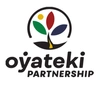The Gabriel Dumont Institute (GDI), Saskatchewan Indian Institute of Technologies (SIIT), and the University of Saskatchewan (USask) are partners in the EleV Program through a unique collaboration known as the Oẏateki Partnership. EleV is a collaborative initiative that is creating opportunities for Indigenous learners to be full partners in their education and journey to meaningful work.
The Oẏateki Partnership builds on a history of collaboration across GDI, SIIT and USask and leverages the expertise, relationships, and specific roles of each partner institution to scale efforts and transform education and employment systems in Saskatchewan. Through this bold partnership 32,000 First Nations and Métis young people will succeed on their path to post-secondary education, through their education and training, and their transition to meaningful employment and entrepreneurship opportunities.
Launched in 2021, with a five-year commitment from the Mastercard Foundation, the partnership aims to support successful transitions to post-secondary for Indigenous youth, increase positive outcomes for Indigenous learners while at post-secondary, support successful transitions from post-secondary into meaningful careers and work for Indigenous youth, and strengthen coordination, communication, and integration of the post-secondary and employment systems for Indigenous youth.
This partnership includes:
• 32,000 First Nations and Métis young people benefitting directly (approximately 12,000) and indirectly (approximately 20,000) from greater coordination and collaboration, and enhanced and new programming, services, and supports focused on transitions to post-secondary, success in post-secondary, and transitions to meaningful work.
• New and expanded mentorship and transition programs to support Indigenous youth in the K-12 system and those currently disengaged from post-secondary education and employment, including incarcerated youth.
• Co-creation and innovative delivery of programs and supports with First Nations and Métis communities, including new community-level delivery, land-based delivery, virtual programs and supports, micro-credentials, mental health and cultural supports.
• New programs supporting Indigenous learners to explore and succeed in graduate and professional degrees.
• Expanded training, apprenticeship, and internship programs for First Nations and Métis youth, including working with employers to create more inclusive and representative work environments.
• Delivery of new entrepreneurship programs and an enhanced entrepreneurship ecosystem in greater service of Indigenous youth and communities, including business development and wraparound supports and start-up grants.
• Enhanced cross-institutional governance and decision-making approaches that include the voices of Indigenous youth and community members to foster greater coordination, communication, and collaboration across the partner institutions and with the broader education and employment systems.

